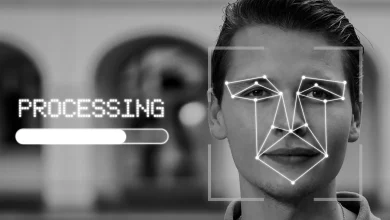General
2 days ago
Are Flying Cars Finally a Practical Reality?
What once belonged to science fiction is inching toward everyday life: flying cars are no…
Mobile
3 days ago
Is Voice-Only Control the Future of Smartphones?
As digital assistants grow smarter, voice-only smartphones are becoming more than just a futuristic concept.…
Computer
3 days ago
Can AI Optimize Your PC Better Than You Can?
You’ve probably heard the buzz around AI PC optimization, but what does it really mean?…
Car
3 days ago
How Safe Are Autonomous Cars in Real Traffic?
As autonomous cars edge closer to mainstream adoption, their real-world safety performance remains a critical…
Artificial Intelligence
3 days ago
Will On-Device AI Replace Cloud Processing?
The rise of on-device AI is reshaping how devices process information. Rather than sending data…
Computer
27 minutes ago
Will Future Computers Run on Light, Not Electricity?
It might sound like science fiction, but photonic computing—using light instead of electricity—is on its…
Mobile
29 minutes ago
Could Your Next Smartphone Be Implanted in Your Body?
Smartphones have come a long way—from bulky bricks to sleek touchscreens. Now, the next leap…
Car
32 minutes ago
Are We Just Years Away From Self-Driving Superiority?
Let’s face it—humans aren’t perfect behind the wheel. We drive tired, distracted, angry, or worse.…
Artificial Intelligence
34 minutes ago
What If an AI Could Predict Your Every Move?
Ever had a moment where you thought of something—say, a new pair of sneakers—and boom,…
Artificial Intelligence
2 days ago
Will AI Companions Replace Human Relationships?
In today’s digital age, AI companions are becoming increasingly prevalent. From chatbots that offer emotional…
General
2 days ago
Are Flying Cars Finally a Practical Reality?
What once belonged to science fiction is inching toward everyday life: flying cars are no…
Mobile
3 days ago
Is Voice-Only Control the Future of Smartphones?
As digital assistants grow smarter, voice-only smartphones are becoming more than just a futuristic concept.…
Computer
3 days ago
Can AI Optimize Your PC Better Than You Can?
You’ve probably heard the buzz around AI PC optimization, but what does it really mean?…
Car
3 days ago
How Safe Are Autonomous Cars in Real Traffic?
As autonomous cars edge closer to mainstream adoption, their real-world safety performance remains a critical…
Artificial Intelligence
3 days ago
Will On-Device AI Replace Cloud Processing?
The rise of on-device AI is reshaping how devices process information. Rather than sending data…
Computer
27 minutes ago
Will Future Computers Run on Light, Not Electricity?
It might sound like science fiction, but photonic computing—using light instead of electricity—is on its…
Mobile
29 minutes ago
Could Your Next Smartphone Be Implanted in Your Body?
Smartphones have come a long way—from bulky bricks to sleek touchscreens. Now, the next leap…
Car
32 minutes ago
Are We Just Years Away From Self-Driving Superiority?
Let’s face it—humans aren’t perfect behind the wheel. We drive tired, distracted, angry, or worse.…
Artificial Intelligence
34 minutes ago
What If an AI Could Predict Your Every Move?
Ever had a moment where you thought of something—say, a new pair of sneakers—and boom,…
Artificial Intelligence
2 days ago
Will AI Companions Replace Human Relationships?
In today’s digital age, AI companions are becoming increasingly prevalent. From chatbots that offer emotional…
General News
27 minutes ago
Will Future Computers Run on Light, Not Electricity?
29 minutes ago
Could Your Next Smartphone Be Implanted in Your Body?
32 minutes ago
Are We Just Years Away From Self-Driving Superiority?
34 minutes ago
What If an AI Could Predict Your Every Move?
27 minutes ago
Will Future Computers Run on Light, Not Electricity?
29 minutes ago
Could Your Next Smartphone Be Implanted in Your Body?
32 minutes ago
Are We Just Years Away From Self-Driving Superiority?
34 minutes ago



















